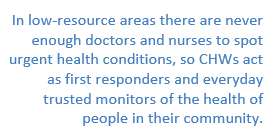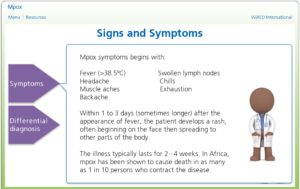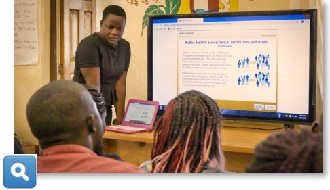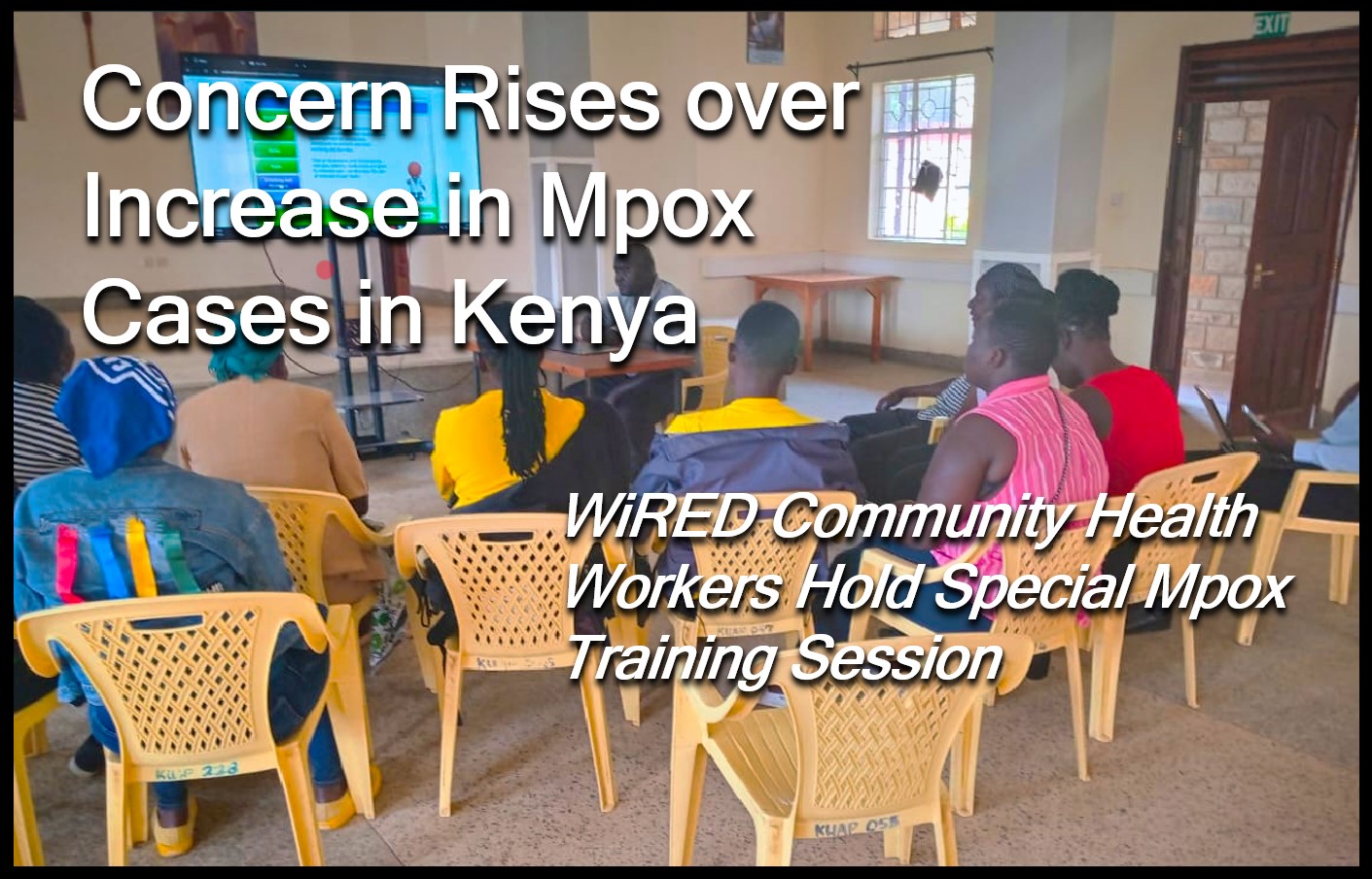By Allison Kozicharow; Edited by Elizabeth Fine
In mid-August The World Health Organization (WHO) declared mpox to be a global health emergency after a spreading outbreak in Africa. On August 22 UNICEF reported a surge in mpox cases among children in parts of some African countries, including Kenya.
 In response, WiRED International’s community health worker (CHW) team in Kisumu, Kenya, organized a special upgrade training session to ensure that they were fully briefed on the signs and symptoms of mpox and understood how it is transmitted and treated. CHWs already had access to WiRED’s Mpox module, created last June, but knew that they needed to be fully prepared to spot suspected cases among their populations and calm local fears amid growing alarms.
In response, WiRED International’s community health worker (CHW) team in Kisumu, Kenya, organized a special upgrade training session to ensure that they were fully briefed on the signs and symptoms of mpox and understood how it is transmitted and treated. CHWs already had access to WiRED’s Mpox module, created last June, but knew that they needed to be fully prepared to spot suspected cases among their populations and calm local fears amid growing alarms.
 WiRED CHWs are trained in community health surveillance. Their role is crucial to watch for illness and report outbreaks to health authorities. In low-resource areas there are never enough doctors and nurses to spot urgent health conditions, so CHWs act as first responders and everyday trusted monitors of the health of people in their community.
WiRED CHWs are trained in community health surveillance. Their role is crucial to watch for illness and report outbreaks to health authorities. In low-resource areas there are never enough doctors and nurses to spot urgent health conditions, so CHWs act as first responders and everyday trusted monitors of the health of people in their community.
Read WiRED’s August 16 story on WHO’s mpox alert and on our Mpox module to review the facts about this dangerous disease. WiRED will continue to provide updates on mpox around the world and especially in the Kisumu community.
The mpox training, using WiRED’s module, took place on August 20, and 16 CHWs attended. The training was very important because our CHWs are now able to create awareness and sensitize community members on the modes of transmission, signs and symptoms, prevention and treatment, and they also can refer suspected cases to hospitals. The CHWs will now support the government efforts to curb the spread especially in densely populated areas where some of the early cases are coming from. Our CHWs thank the WiRED medical professionals who put the mpox module together for the training.
—Lillian Dajoh, WiRED CHW Coordinator
Why This Mpox Training?
Following basic training all WiRED CHWs enter a multipart program for ongoing health education:
- First, in WiRED’s Continuing Medical Education (CME) program, CHWs must complete 50 credits of additional training each year, where they select topics from a library of 400 modules. Some choose an array of health topics to develop a wider understanding of community health. Others drill down into specialty areas — such as mother and child health and living with diabetes — that prepare CHWs with greater expertise in specific health issues.
 Second, WiRED alerts CHWs when an outbreak or other serious health condition is headed their way. The mpox infection, impacting much of Africa, is a good example. In such cases, WiRED immediately flags warnings, provides training material and prepares CHWs to address health threats even before an illness surfaces locally.
Second, WiRED alerts CHWs when an outbreak or other serious health condition is headed their way. The mpox infection, impacting much of Africa, is a good example. In such cases, WiRED immediately flags warnings, provides training material and prepares CHWs to address health threats even before an illness surfaces locally.- Both the CME and health alert programs rely on WIRED-developed IT tools that instantly deliver training modules directly to CHWs’ smart phones. This allows CHWs to quickly study the material offline, independently or in groups.
- WiRED has developed and tested these training and delivery tools over much of the past decade. In underserved regions, where CHWs extend the reach of the professional medical community, their ongoing training is critical. They monitor health conditions, provide first-responder services, serve as a bridge to doctors and nurses and — of critical importance — teach community members about disease prevention. WiRED’s well-trained CHWs provide essential health services especially in places where communities remain off the healthcare grid.


